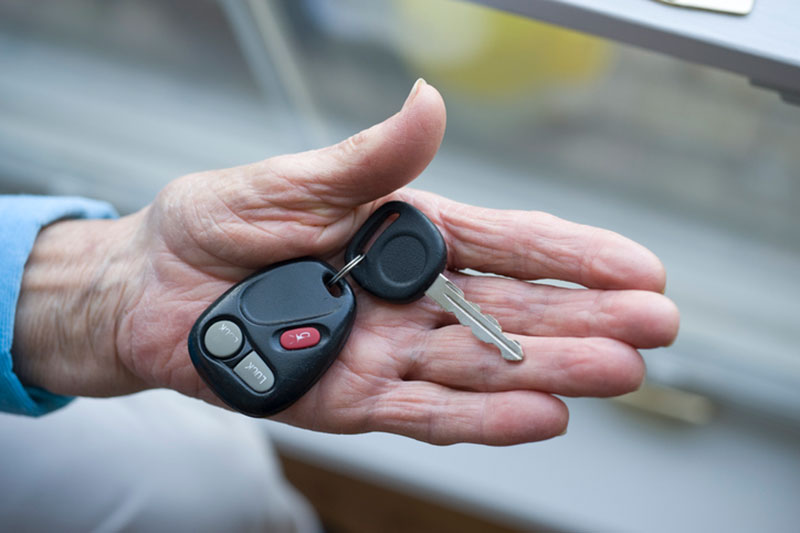
When older loved ones can’t drive, how can they maintain independence?
It’s a conversation none of us wants to have with our aging parents, but one that will probably be imperative eventually. Being able to drive whenever and wherever we decide is a key component to our sense of freedom, yet as we grow older, driving can be dangerous for a variety of reasons: poor vision, decreased reflex and response times, cognitive problems, and more. If you are starting to worry that a loved one can’t drive safely, it’s time to discuss the idea of giving up the car keys.
How Can You Tell That It Is Time for a Senior to Stop Driving?
There are several warning signs to watch out for that could indicate that a senior can’t drive safely any longer, including:
- Becoming lost on familiar driving routes
- Missing traffic signals or signs
- Failure to yield or cutting off other drivers
- Making wider than necessary turns
- Not staying between the lines
- Coming across as tired or inattentive
- Experiencing difficulty with judging distances
- Becoming frustrated, angry, or agitated
- Not using turn signals or mirrors accordingly
How Should You Begin the Discussion About Giving Up the Keys?
Most importantly, avoid criticizing or correcting the older adult’s errors as they are driving, as this can result in increased unsafe behaviors. Once the car is parked, calmly mention specific instances of concern that you witnessed as a starting point to the larger conversation concerning the necessity for the person to quit driving.
The following tips are a good way to move the conversation forwards and to make certain you will be heard and taken seriously. Use the conversation to reduce the senior’s stress and to offer a solution that will empower the senior to maintain independence.
Key Points to Consider:
- Employ help from others that the senior knows and trusts, either in supplying their own examples of concerns or even in joining you when it is time for the conversation.
- Steer clear of shaming or blaming the senior.
- Keep your temperament peaceful and encouraging so that you don’t come across as angry.
- Discuss specific instances of worrisome behaviors.
- Let the senior know you’re in this together, and that collectively you are going to arrive at an answer that ensures safety for the senior as well as other drivers and pedestrians.
- Expect opposition and defensiveness, and that it could take multiple conversations.
If the senior remains adamant about not stopping driving, arrange for a checkup and consultation with the doctor. There could be side effects from medications, vision problems, or other health-related reasons for driving difficulties that can be corrected; or, the physician may have more influence in encouraging the senior to stop driving.
How Can an Older Adult Stay Independent Without Being in a Position to Drive?
Thankfully, there is a simple remedy that allows an older adult to come and go as they wish: a professional in-home caregiver from Live Free Home Health Care, a provider of home care services in Concord, NH and the surrounding communities[.
Our caregivers are available to provide transportation and accompaniment whenever and wherever a senior would like to go, including:
- Doctor appointments and procedures
- Running errands and shopping
- Social visits
- Going out to lunch or for a walk in the park
- Hair and nail appointments
- Exercise or other classes
- Even vacations or longer-distance outings
The best part? A care provider can provide friendly companionship and conversations that make any journey a lot more enjoyable than going alone!
Connect with our experts in home care services in Concord, NH and the nearby areas at 603-217-0149 to inquire about our transportation services for seniors, and help a senior you love live their best life, safely and happily.
